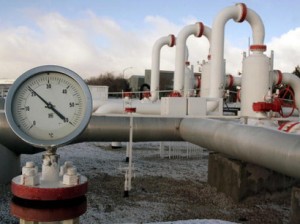 DUBAI�Dubai has sharply reduced its purchases of natural gas liquids from Iran, falling in line with other nations that have curbed their imports of Iranian energy in response to U.S. pressure.
DUBAI�Dubai has sharply reduced its purchases of natural gas liquids from Iran, falling in line with other nations that have curbed their imports of Iranian energy in response to U.S. pressure.Over the past six months, the government-owned Emirates National Oil Co. has halved its purchases of Iranian condensates, a light fuel that is refined into jet fuel, gasoline and other petroleum products, according to shipping and industry officials. Imports of Iranian condensate were running about 4 million barrels a month in mid-2012, but by December had been cut back to 2 million barrels, the officials said.
Enoc "has shown the U.S. officials that they are very serious about reducing Iranian imports despite the fact that their refinery is dependent on Iranian condensates," said a Gulf-based official familiar with Enoc's purchases.
Enoc officials didn't respond to requests for comment.
China, Japan, India and other nations have already curbed their purchases of Iranian crude oil in response to U.S. pressure over its nuclear program. The U.S. and the European Union suspect that Iran is attempting to develop nuclear weapons, but Iran insists its program is peaceful.
Iran has long had close trading ties with Dubai, one of seven emirates that make up the United Arab Emirates. But Dubai has already taken a number of steps to rein in its dealings with Iran.
In late 2011, the U.S. threatened sanctions against Dubai-based Noor Islamic Bank, saying it had emerged as a key financing vehicle for Iran's oil trade. The bank subsequently said it had agreed to halt dealings with Iran. Meanwhile, re-exports to Iran from the U.A.E. dropped by nearly a third in the first half of 2012, as the tighter international sanctions curbed one of the Islamic republic's main sources of consumer goods imports.
Though Enoc continues to import Iranian condensates to process in its 120,000-barrel-a-day refinery at the port of Jebel Ali, Dubai is said to be hopeful that the cutback is sufficient to satisfy the U.S.
"The reduction is enough to please the U.S. administration, but the dilemma now is finding alternative for the Iranian imports which is a quite costly option," said the Gulf-based official. An official at the U.S. embassy in Abu Dhabi declined to comment.
On Sunday, Enoc said it is finalizing contracts with several alternative condensate suppliers "in the Middle East and Far East" to make up for increased demand for products and a shortfall in supplies from Iran. It said it had already started importing condensate from neighboring Qatar, but didn't provide figures.
Unlike Abu Dhabi, the richest emirate in the U.A.E., Dubai has to import the bulk of its energy needs. And because fuel prices are heavily subsidized throughout the U.A.E., Dubai has had to provide substantial subsidies to Enoc and Eppco, another gasoline distributor in the emirate.
Supplies from Iran are attractive because Enoc received a discount from prevailing international prices of about $2 a barrel and easy credit terms, according to a Dubai-based oil industry official.
According to a recent bond prospectus issued by the Dubai government, the emirate's energy subsidies amounted to 7.1 billion dirhams ($1.93 billion) as of June 30, 2012.
By The Wall Street Journal
The Iran Project is not responsible for the content of quoted articles.










